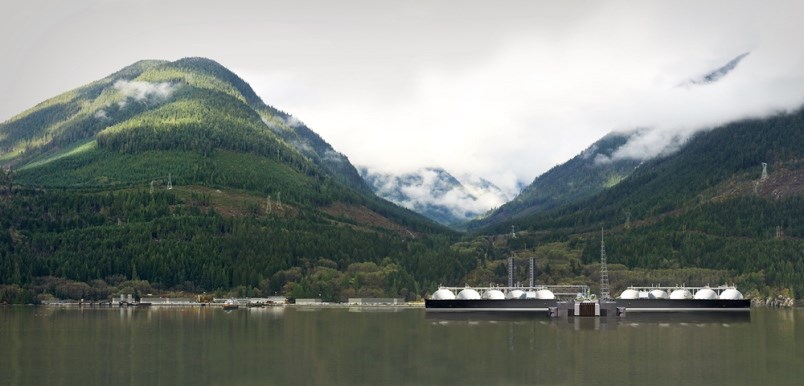Woodfibre LNG has inked its second sales deal with BP Gas Marketing Limited, a subsidiary of BP Plc
Woodfibre, a subsidiary of Pacific Oil & Gas, signed a special purchasing agreement with BP Gas Marketing for another 0.75 million tonnes per annum of LNG over 15 years on a free on board (FOB) basis, the company announced May 6..
Previously, in 2019, Woodfibre signed a deal for 00.75 million tonnes per annum of LNG over 15 years.
In total, that means BP Gas Marketing will be receiving a total of 1.5 million tonnes per annum, which is over 70% of Woodfibre LNG’s future annual production.
Woodfibre LNG can either sell to an offtake company or on the spot market, according to company spokesperson Rebecca Scott.
Pacific and Woodfibre continue to brand their product as a means to displace other fossil fuels that they say create a larger carbon footprint.
“Forward-looking companies like BP are turning to projects like ours for sustainable, stable gas that will supply a clean energy mix,” said Ratnesh Bedi, president of Pacific Oil & Gas, in a news release. “We look forward to working with BPGM to deliver Canadian natural gas from one of the lowest carbon footprint LNG facilities in the world, and help advance the climate goals of growing economies as they phase away from coal, lower their emissions, and meet net-zero targets.”
“The use of renewable energy for e-drive power places Woodfibre – and Squamish – at the forefront of the world’s clean energy transition,” said Ron Bailey, president of Woodfibre LNG.
After pushing it back a couple of times, officials with the company have said its leadership may make a final investment decision (FID) in 2021 to start construction.
The heads of the Squamish environmental group My Sea to Sky were not impressed by the news.
“BP Gas Marketing is not an end-use customer — it is a sales organization that sells fracked gas,” said Eoin Finn, chair of My Sea to Sky.
“Both of these deals are only for 15 years, and there’s no guarantee that BP Gas Marketing will even be able to sell this fracked gas, particularly as customers are quickly pivoting toward zero-emission renewable energy that is cheaper to install.”
Marine scientist Tracey Saxby, executive director of the My Sea to Sky, added that: “The idea that we can solve climate change by burning even more fracked gas is illogical."
“It is critical that we immediately pivot away from destructive fossil fuels like fracked LNG and invest in renewable energy.
**This story has been corrected since it was first posted to remove a part of a quote that was not accurate.



